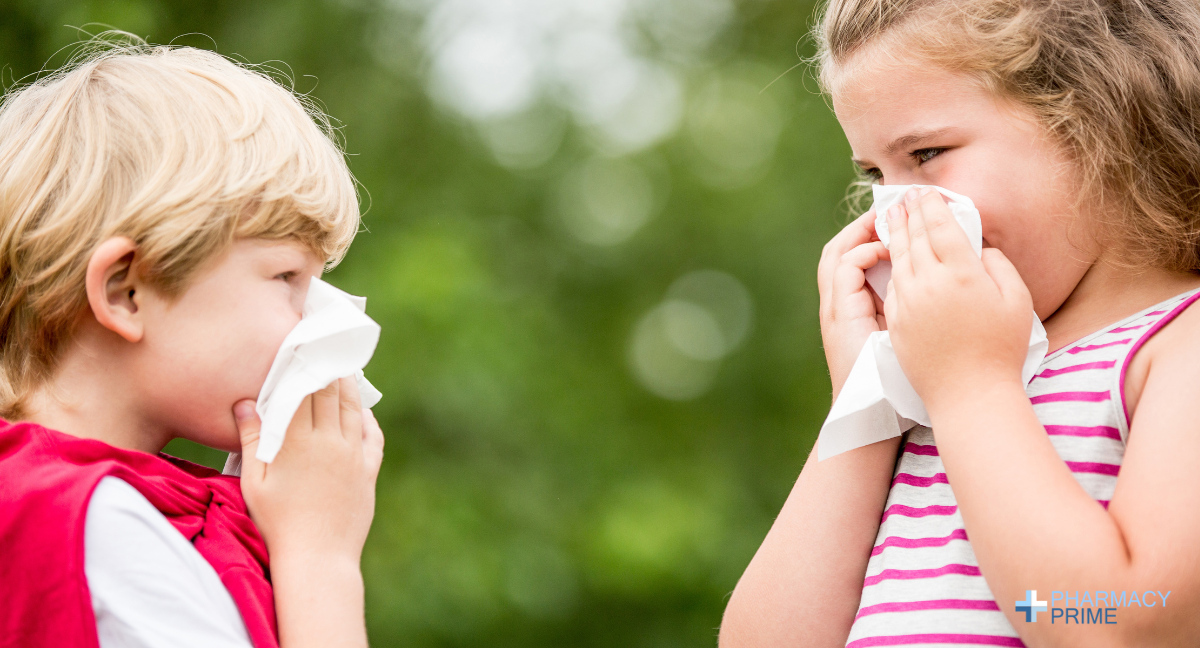Hay fever is a common allergy that affects millions of children around the world. It occurs when a child's immune system overreacts to airborne particles, such as pollen or dust, which are otherwise harmless to most people. When a child with hay fever comes into contact with these allergens, their body produces an inflammatory response which causes symptoms such as sneezing, runny nose, itchy eyes, and coughing.
Symptoms of hay fever in children:
In children, hay fever symptoms can vary from mild to severe. Common symptoms include:
- Sneezing
- Runny nose
- Itchy nose
- Nasal congestion
- Red, itchy or watery eyes
- Itchy throat, mouth, or ears
- Coughing
- Fatigue
If a child has asthma, hay fever can also trigger asthma symptoms, such as wheezing, shortness of breath, and chest tightness.
Treatment for hay fever in children:
There are several types of treatments available for children with hay fever. The most common treatments include antihistamines, decongestants, nasal sprays, and eye drops.
Antihistamines work by blocking the effects of histamine, a chemical that the body produces in response to an allergen. This helps to relieve symptoms such as itching, sneezing, and runny nose.
Decongestants work by reducing swelling in the nasal passages, making it easier for children to breathe through their nose. Nasal sprays and eye drops can also be used to relieve symptoms.
The best forms of medicine for children with hay fever depend on the severity of their symptoms and age. Some medications, such as antihistamines, may cause drowsiness in some children, so non-drowsy alternatives should be considered. It's also important to choose medications that are appropriate for the child's age and weight.
Medicines for hay fever in children under 5 years old:
For children under 5 years old, it's important to consult a healthcare provider before giving any medications. Some medications may not be safe for young children, and dosages may need to be adjusted.
Treating hay fever in babies:
Babies under 6 months old should not be given any medication without consulting a healthcare provider. However, there are several non-medical treatments that can be used to relieve symptoms, such as keeping the baby's room well-ventilated and using saline drops to clear their nose.
Treating hay fever in pregnant women:
Pregnant women should also consult a healthcare provider before taking any medications. Some medications may not be safe during pregnancy, and alternative treatments may need to be considered. Nasal sprays and eye drops are generally considered safe during pregnancy, but oral medications should be used with caution.
Treating hay fever in breastfeeding women:
Breastfeeding women should also consult a healthcare provider before taking any medications. Some medications can be passed through breast milk and may affect the baby. Nasal sprays and eye drops are generally considered safe during breastfeeding, but oral medications should be used with caution.
Non-drowsy medicines for children with hay fever:
Non-drowsy antihistamines such as loratadine or cetirizine are a good option for children with hay fever, especially if they need to stay alert during the day. Nasal sprays and eye drops can also be used to relieve symptoms without causing drowsiness.

